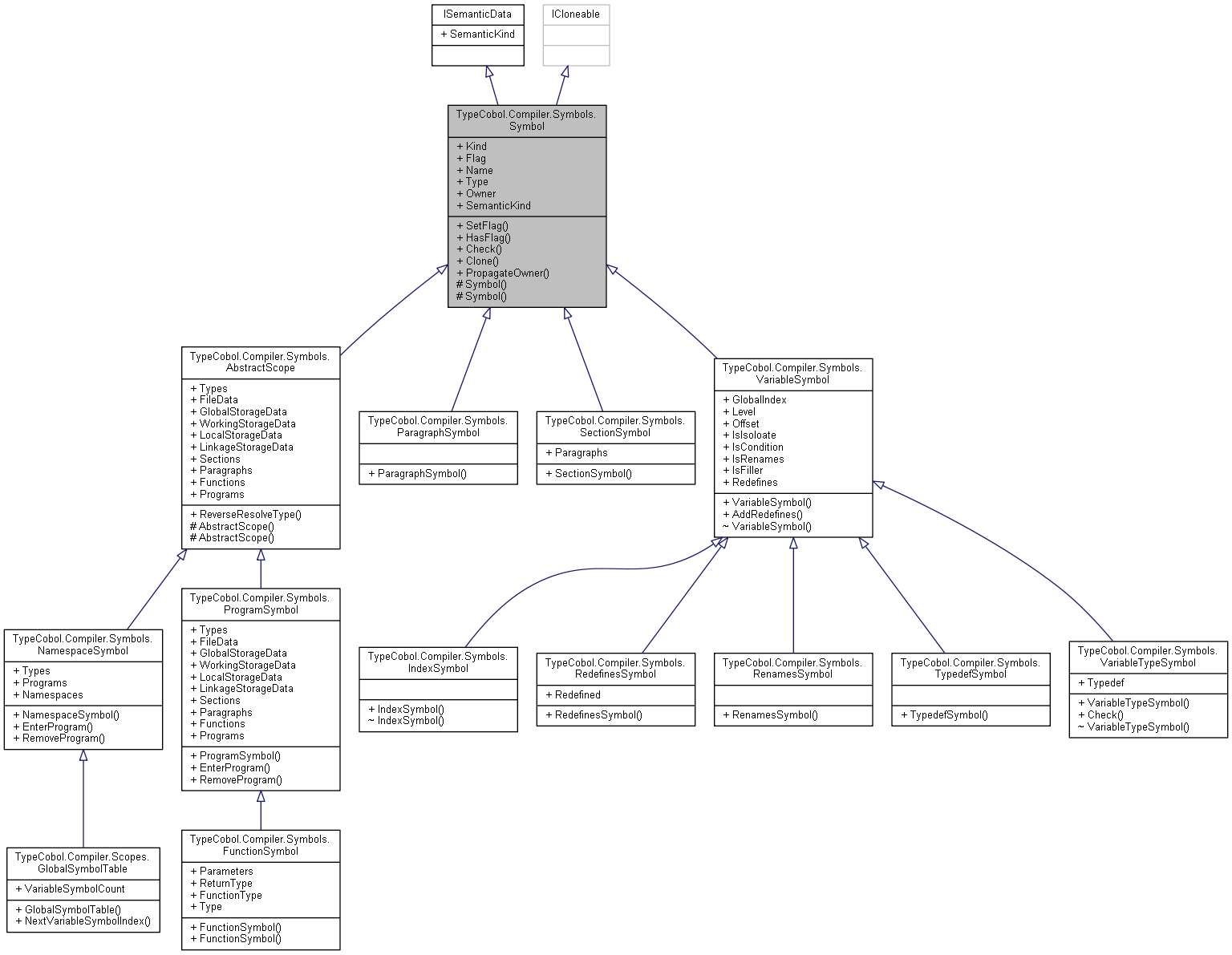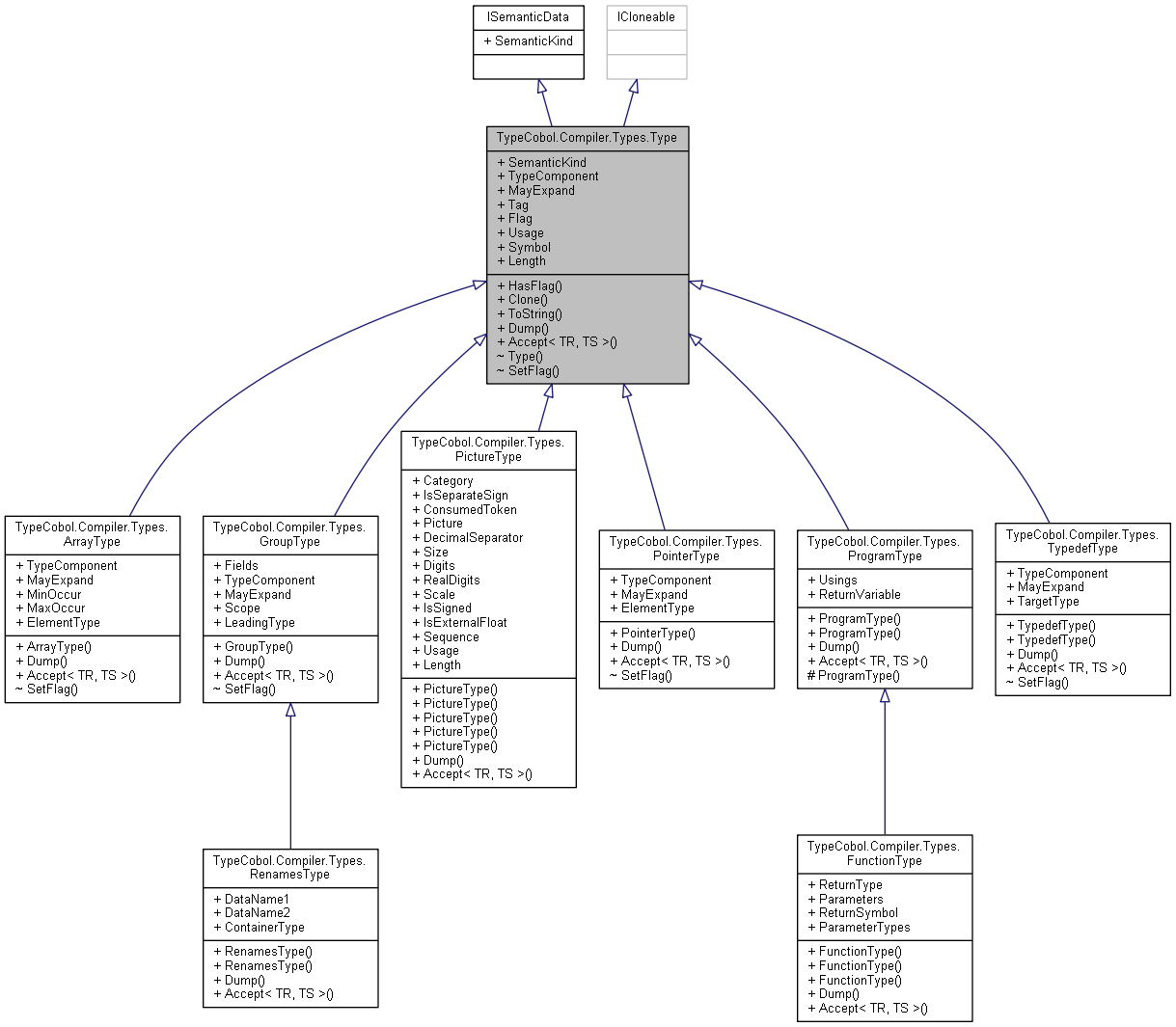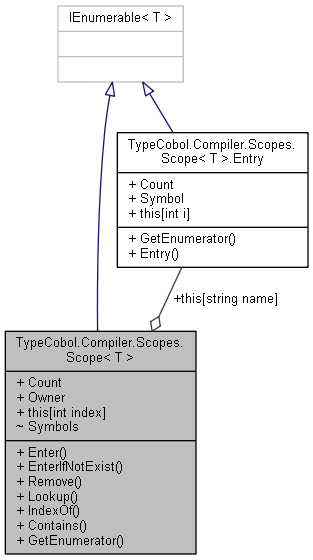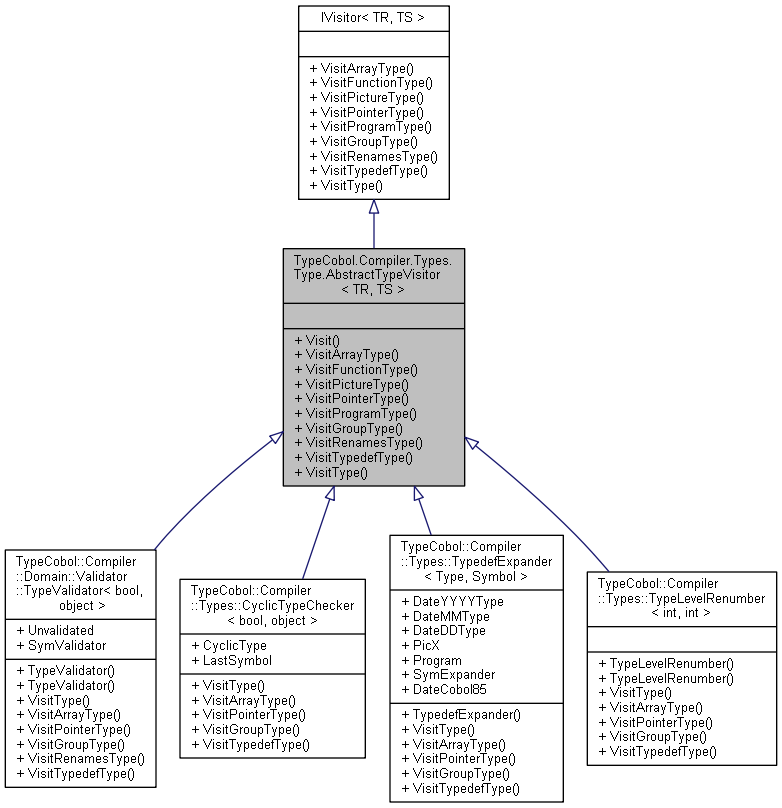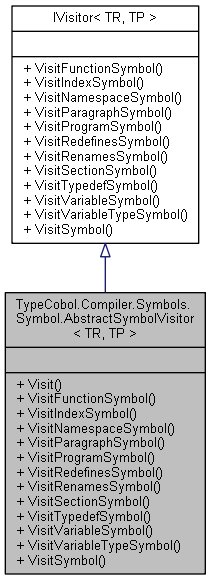-
Couldn't load subscription status.
- Fork 25
Description
Purpose:
Semantic objects are the objects of the domain of definitions of a semantic analyzer, they are the symbols, the types, the tables of symbols. A symbol is the semantic representation of an entity, in a program to which we can give a name, a semantic meaning. The uniqueness of symbols is ensured by their presence in a table of symbols.
-
In the current TypeCobol infrastructure, reference is made to a symbol in terms of grouping information (attributes) on a symbol (SymbolInformation): Symbol type (FileName, MethodName, IndexName, ..), role (Reference, Definition , ExternalName, ..),
-
SymbolInformation are weakly typed (in fact not at all), the type here is only information on the symbol category and not the Semantic Type in the sense of a Type System.
-
SymbolInformation instances are only local information on a supposed symbol, in the sense that there is no associated symbol table, in addition there is no possible parent hierarchy, that is, say we can not determine if the symbol is contained in another symbol. For example we could not represent a symbol that would be a namespace.
- Instances of type QualifiedSymbolReference are only a representation of a qualified name based on instances of SymbolReferences.
-
For these reasons it is important to be able to create classes of instances for the different types of symbols that can contain child symbols (eg the symbols symbols) and also allow these symbols to be stored in real symbol tables; what does the TypeCobol infrastructure do not do
The task : Implement real Symbol Tables #1278 could reuse all the implemention done here.
Semantic Symbols
The class diagram preview below shows the primary semantic symbols represented. This is a simplified class diagram, refer to the source code for members descriptions.
| Class | Description |
|---|---|
| ISemanticData | An interface that specifies the Kind of Semantic Data (Type or Symbol). |
| Symbol | The abstract base class of all kind of symbols. |
| AbstractScope | The abstract base class of all symbol that can a scope. |
| NamespaceSymbol | The class of objet that represents a namespace. Right now TypeCobol does not support namespace. For the moment this symbol is used to represent the Global namespace. |
| ProgramSymbol | The class of objet that represents a program. |
| FunctionSymbol | The class of objet that represents an Function. |
| ParagraphSymbol | The class of objet that represents a paragraph. |
| SectionSymbol | The class of objet that represents a section. |
| VariableSymbol | The class of objet that represents any variable. |
| IndexSymbol | The class of objet that represents an Index. |
| RedefinesSymbol | The class of objet that represents a REDEFINES Symbol. |
| RenamesSymbol | The class of objet that represents a RENAMES Symbol. |
| VariableTypeSymbol | The class of objet that represents a Type Symbol like the Symbol for a TYPEDEF. For instance, in the following sample the variable MyInt is associated to a symbol instance of the class VariableTypeSymbol because its type Int comes from a TYPEDEF declaration. |
01 Int TYPEDEF PIC 9(4)
01 MyInt TYPE Int.|
Semantic Types
The class diagram preview below shows the primary semantic types represented for the Type System. This is a simplified class diagram, refer to the source code for members descriptions.
| Class | Description |
|---|---|
| ISemanticData | An interface that specify the Kind of Semantic Data (Type or Symbol), thus here a Type. |
| Type | The abstract base class of all kind of types. |
| ArrayType | The class of objet that represents an array type. |
| PictureType | The class of objet that represents a PICTURE type. |
| PointerType | The class of objet that represents a POINTER type. |
| ProgramType | The class of objet that represents a Program type. |
| FunctionType | The class of objet that represents a Function type. |
| GroupType | The class of objet that represents a Group type. |
| TypedefType | The class of objet that represents a TYPEDEF type. |
| RenamesType | The class of objet that represents a RENAMES type. |
Scopes
The class diagram preview below shows the primary scopes. A scope is in fact the basic representation of a Symbol table with entries of symbols. This is a simplified class diagram, refer to the source code for members descriptions.
| Class | Description |
|---|---|
| IScope | Interface that describes a scope. |
| Scope | Generic class for representing a Scope that contains symbols of the same generic type T. |
| Entry | Generic class for representing an entry in a generic Scope. |
| RootSymbolTable | The class of objet that represents a Root Symbol Table. |
Visitor pattern and related objects
There to kinds of visitor patterns:
- A Visitor for types
- A Visitor For symbols.
Types visitor
A Visitor for types is used to implements operations (or relations) on types. Most common operations are binary relations of the form: Type * TS -> TR.
With TS a type variable for an argument and TR a type variable for the returned value.
The class diagram preview below shows the primary visitor patterns over types representation. This is a simplified class diagram, refer to the source code for members descriptions.
| Class | Description |
|---|---|
| IVisitor | The interface for a Types visitor. |
| AbstractTypeVisitor | The abstract class for a Types visitor. |
| TypeValidator | Visitor on types for checking if types are well formed. |
| CyclicTypeChecker | Visitor on types for detecting Cyclic TYPEDEF definitions. |
| TypedefExpander | Visitor on types to expand TYPEDEF definitions to their Cobol85 representation. |
| TypeLevelRenumber | Visitor on types for renumbering Level numbers. |
Symbols visitor
A Visitor for symbols is used to implements operations (or relations) on symbols. Most common operations on symbols are binary relations of the form : Symbol * TP -> TR.
Where TP is a type variable for an argument and TR a type variable for a resulting value.
The following are the Visitor over symbols implemented.
| Class | Description |
|---|---|
| IVisitor | The interface for a Symbol visitor. |
| AbstractSymbolVisitor | The abstract class for a Symbol visitor. |
| SymbolValidator | Visitor on symbols for checking if symbols are well formed, that is to say if they are typed. |
| SymbolExpander | Visitor on symbols to expand variables having a type that comes froma TypeDef. |
| LevelRenumber | Visitor on symbols for for renumbering Level numbers. |
